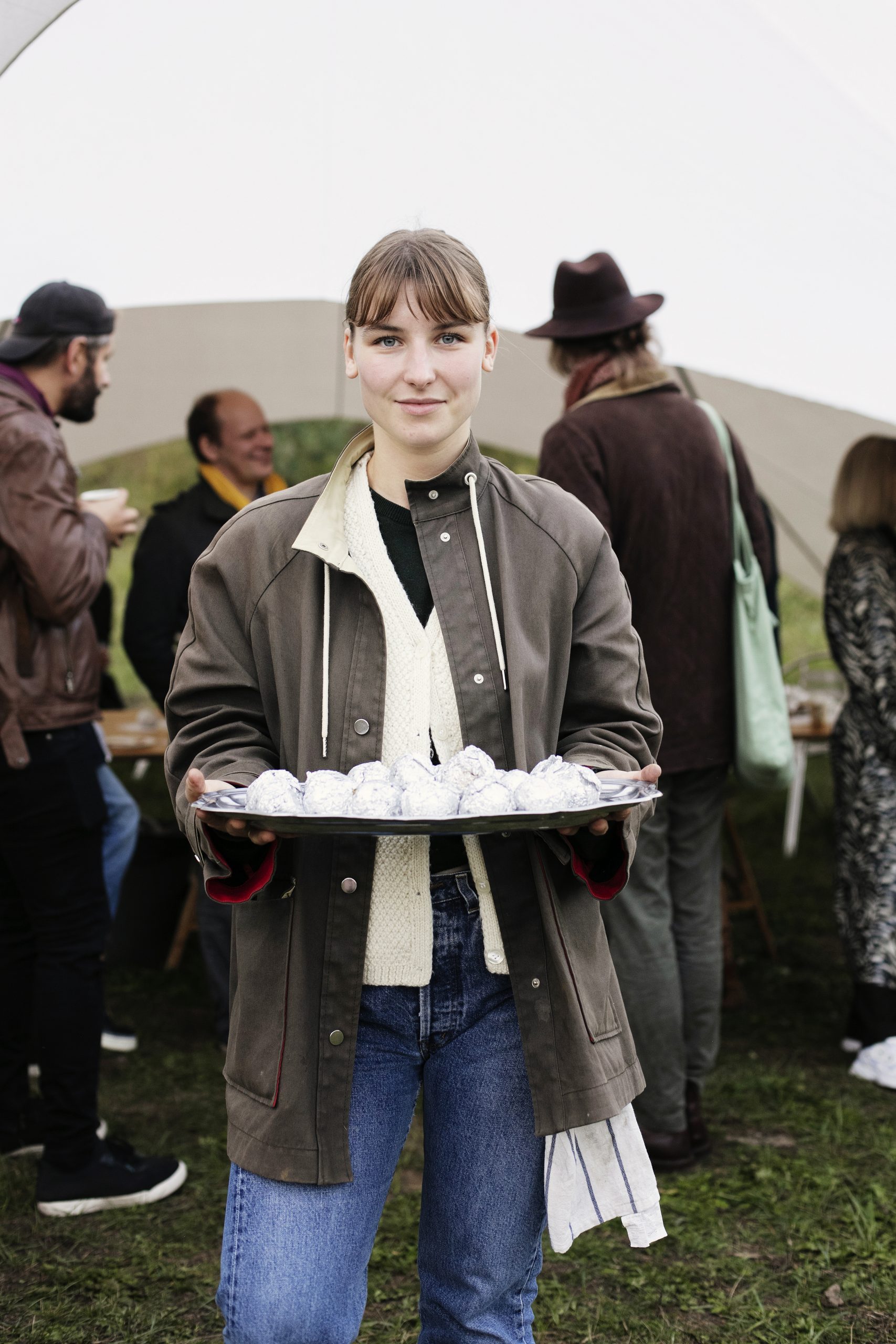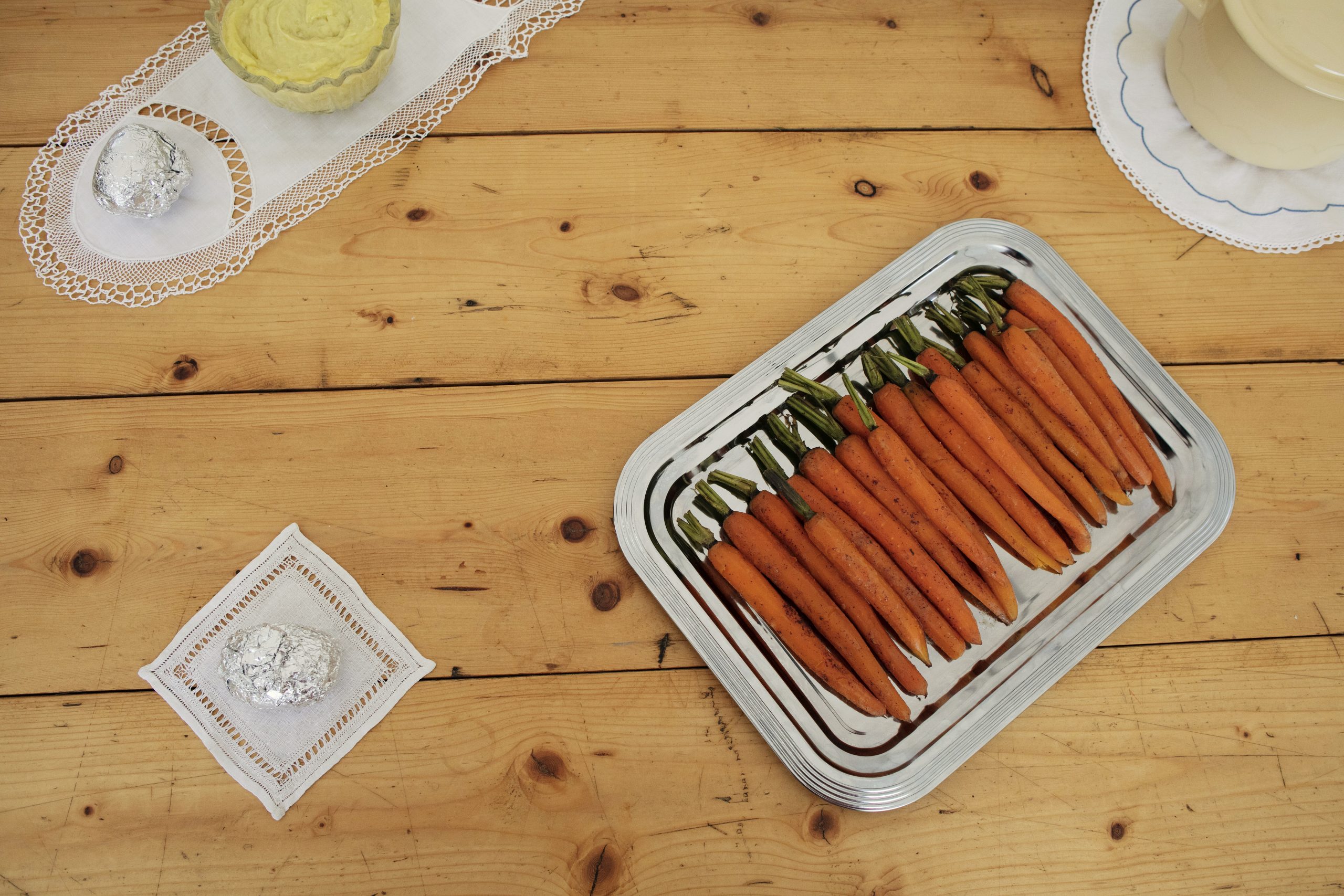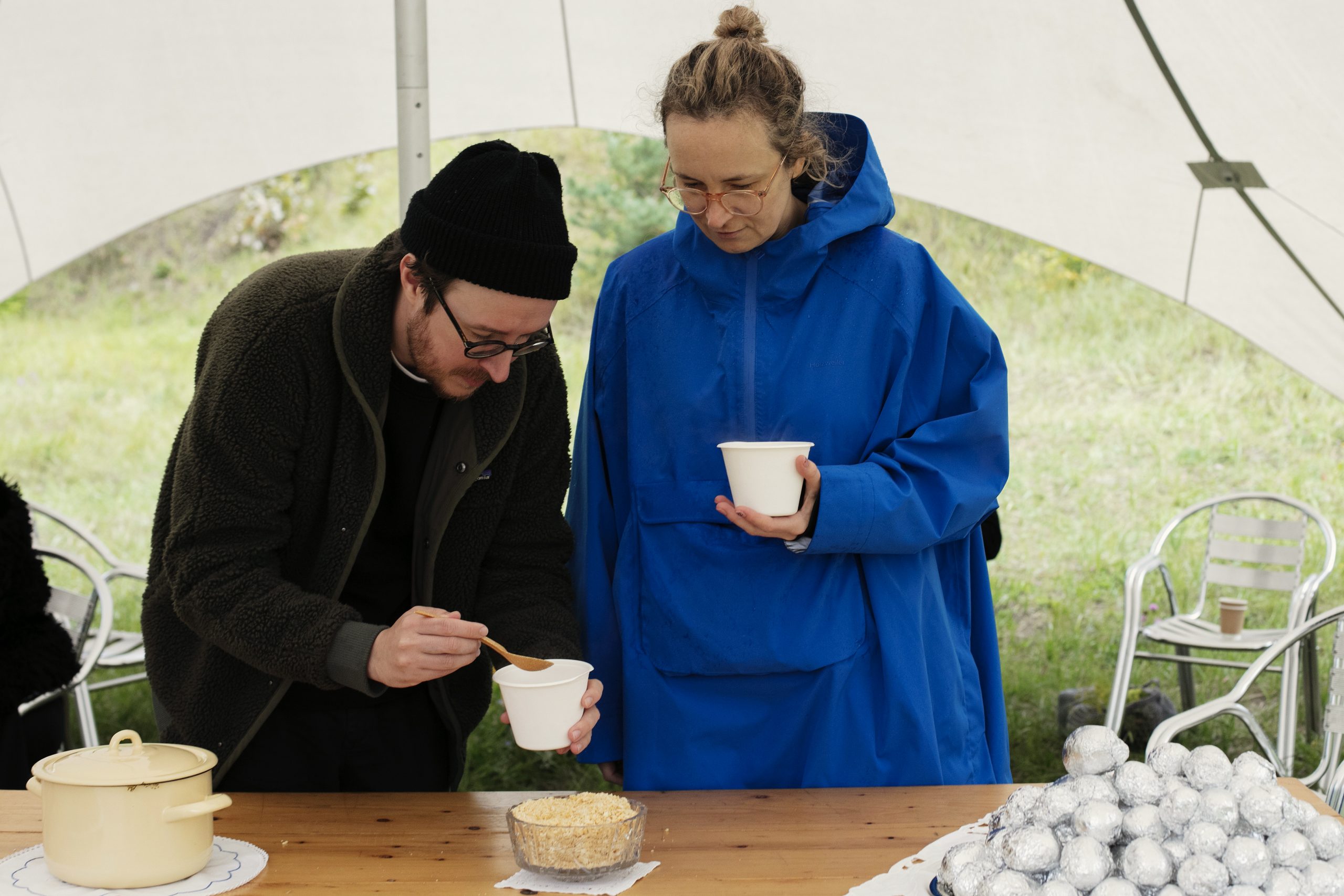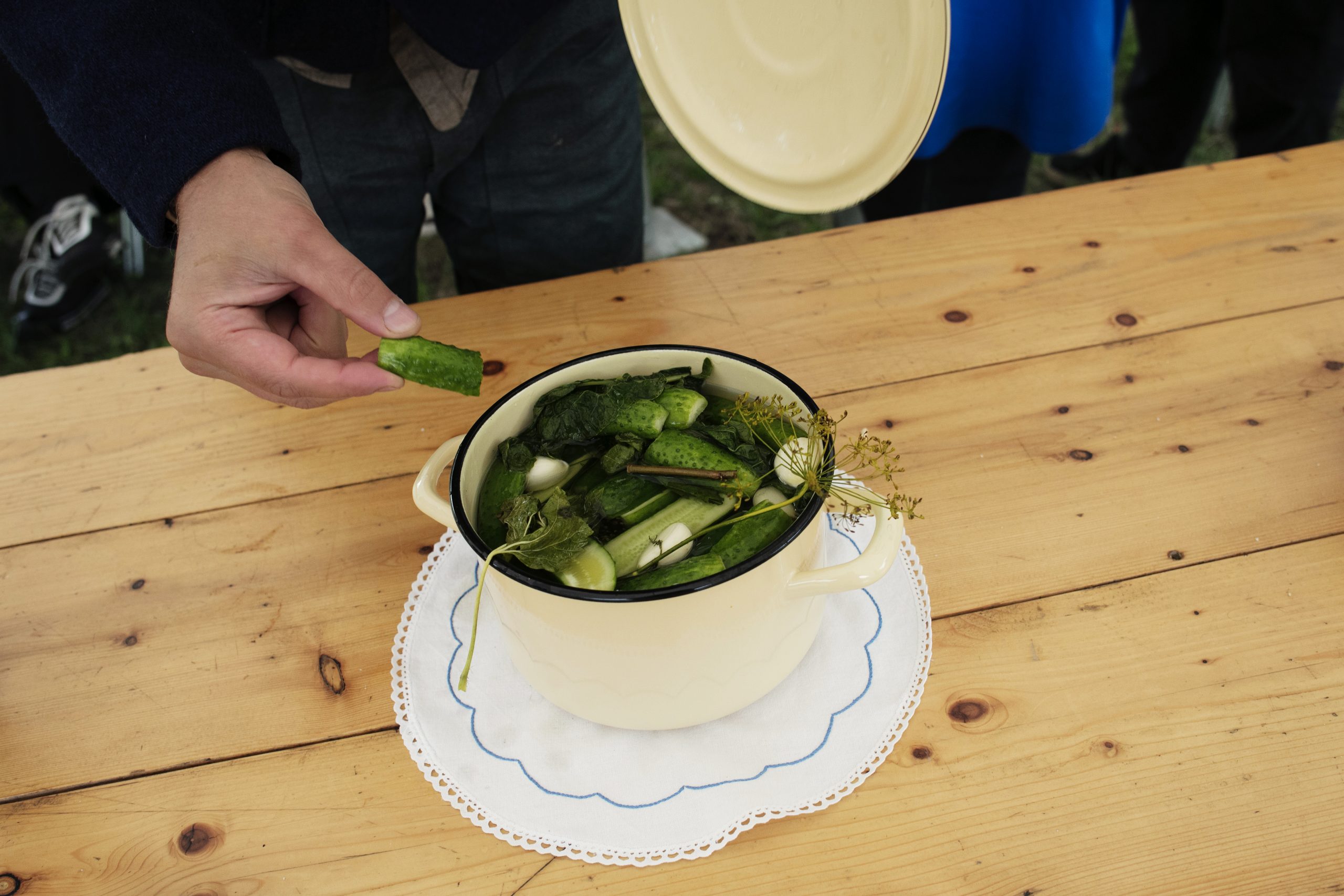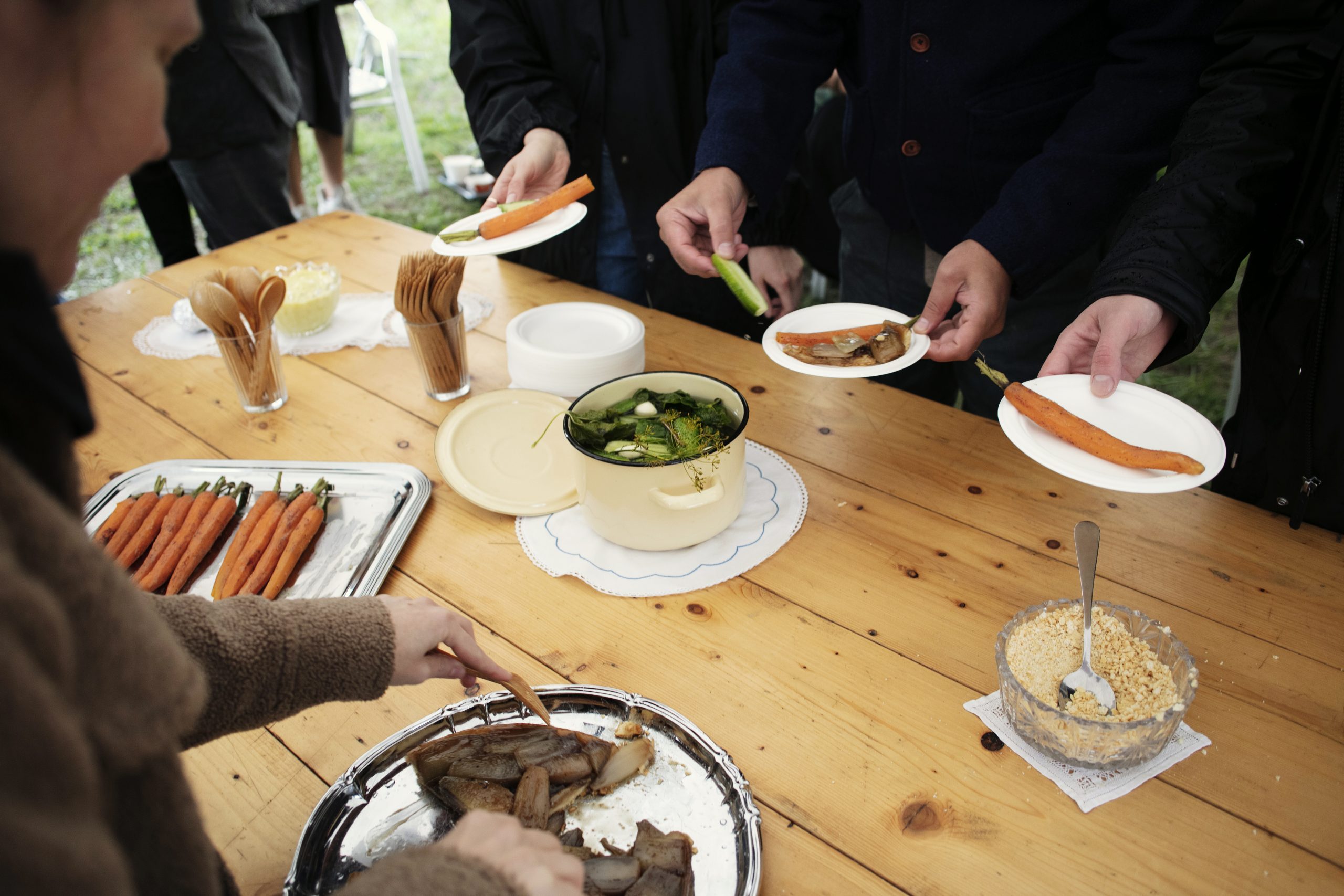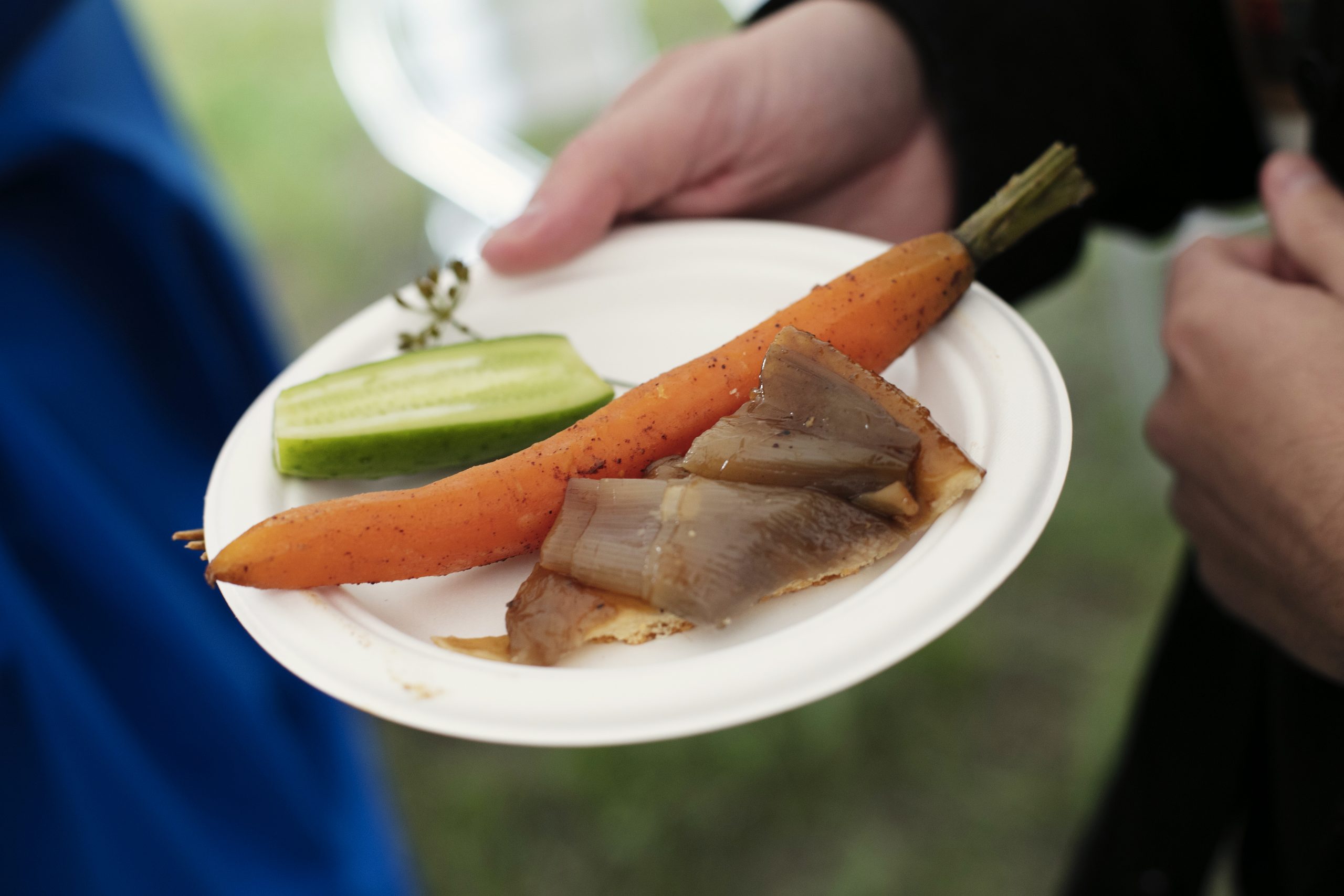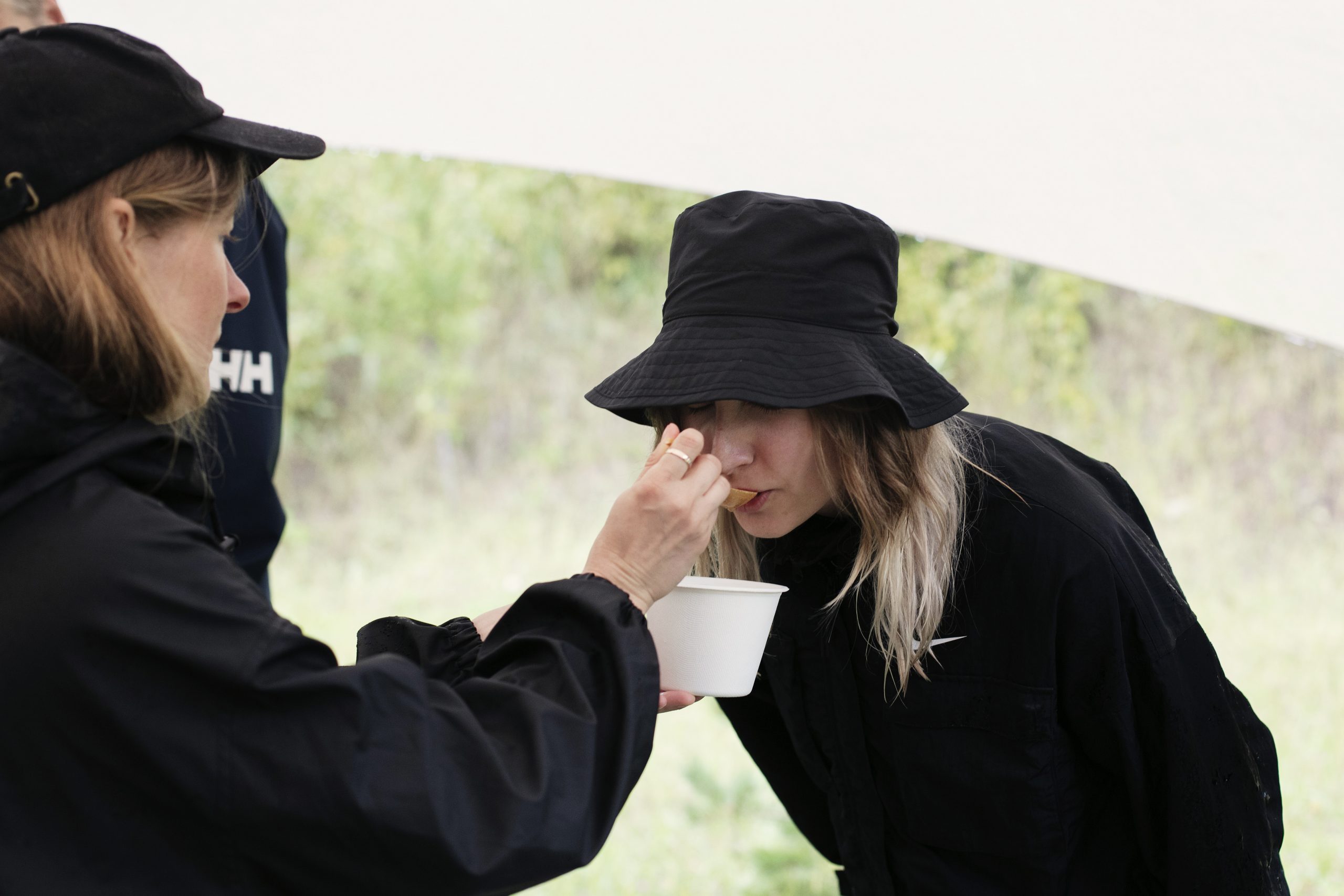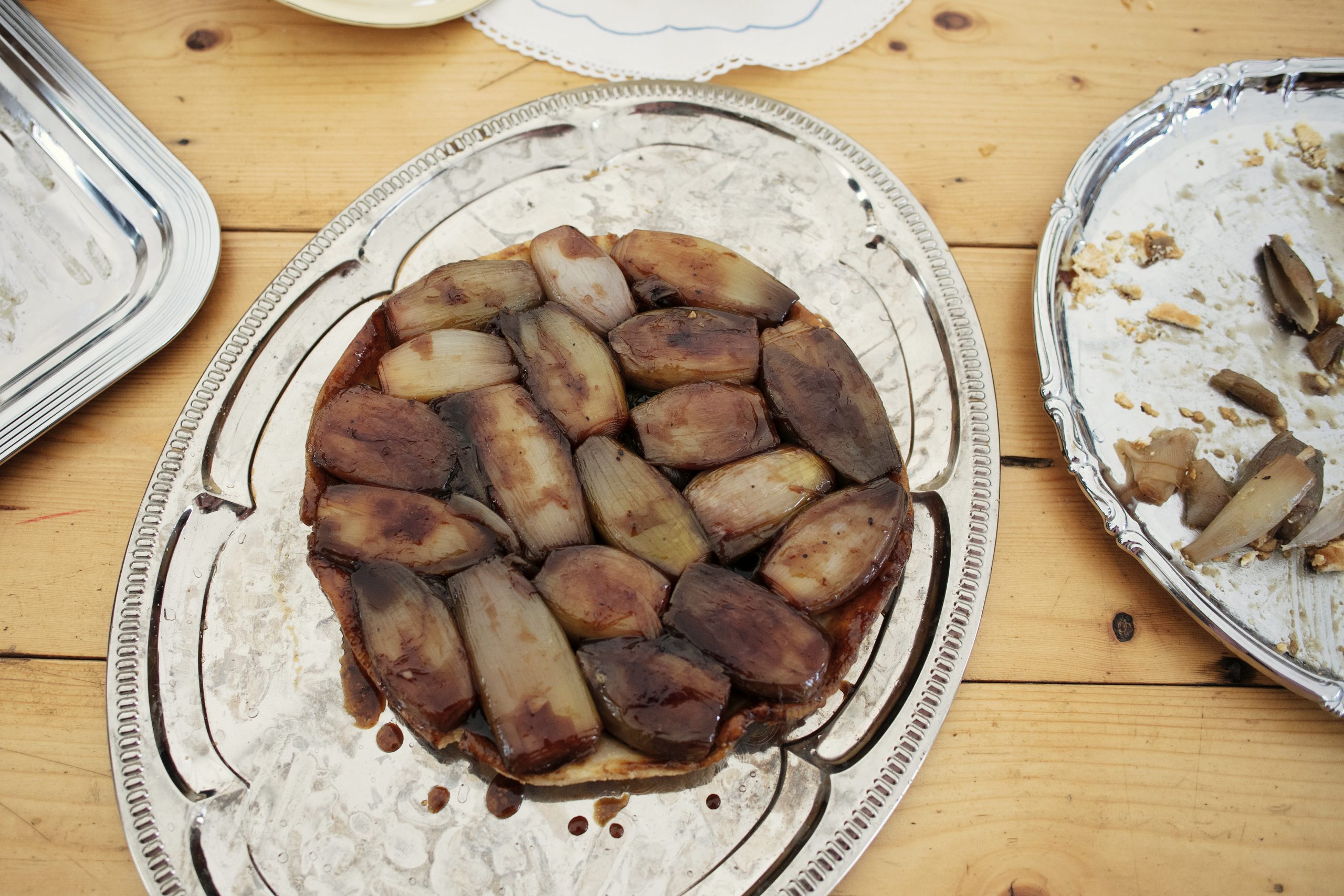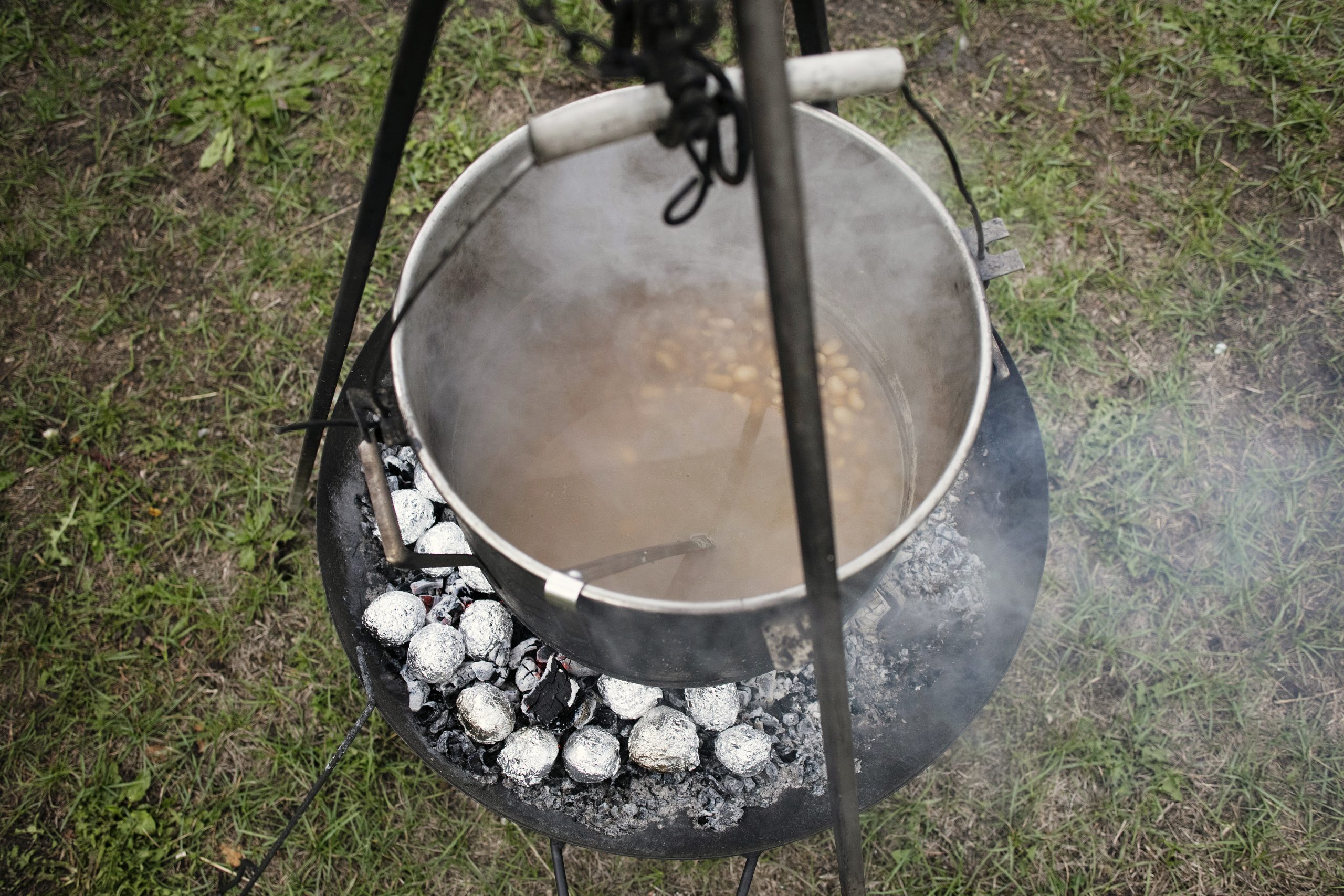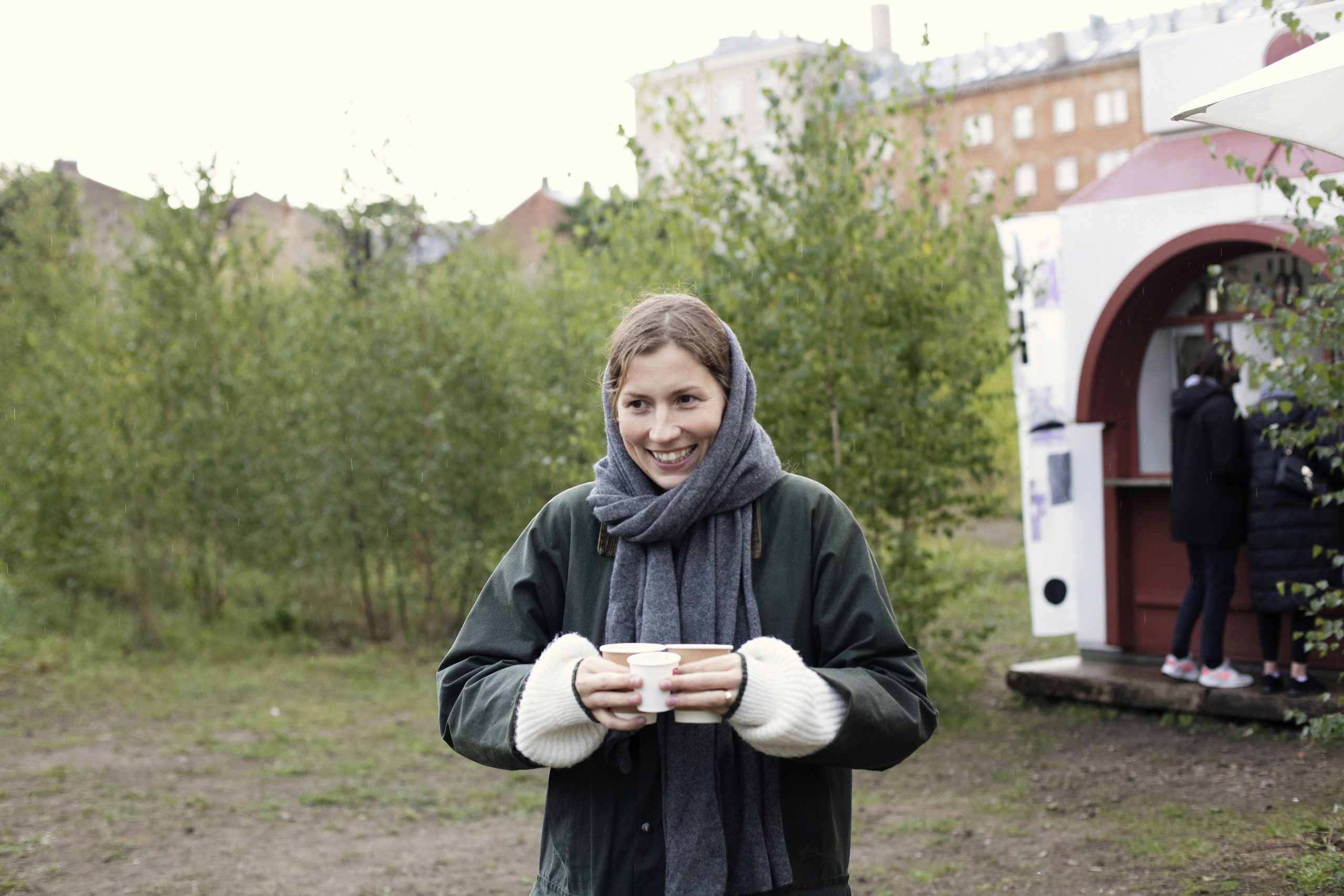‘The Treat’
Monika Varšavskaja’s gastronomic performance
At the seasonal Palette kiosk at Sporta Pils Gardens, Riga
September 17, 2022
Pray for peace and grace and spiritual food,
For wisdom and guidance, for all these are good,
But don’t forget the potatoes.*
J. T. Pettee, ‘Prayer and Potatoes’
The gastronomic intervention ‘The Treat’ assumes a stance from the book ‘How to Cook a Wolf’ by M. F. K. Fisher, which was published in 1942 when food supplies were at their worst and the recipes were meant to encourage people daunted by wartime shortages. Although eighty years have passed since the book was first published, the need to reconsider our everyday consumption habits has not ceased to exist.
With the recent shortage of essential food ingredients and the increasing cost of everyday life, the performative cooking highlights ways to nourish souls with limited resources, particularly when income and other supplies are scarce. It encourages people to experiment and invent adventurous meals from the depths of their cupboards. Most importantly, the event wishes to savour the pleasures of simple everyday cuisine while proposing ways to stay inventive and cherish seasonal ingredients.
Taking place in the communal Gardens of Sporta Pils in Riga, the performative cooking also questions the many ways to engage a community and encourage people to act collectively. It embraces the idea that everyday essential food could be grown in the midst of a lush urban meadow often with limited resources at hand.
‘The Treat’ invites participants to take part in a non-formal gathering to embrace the upcoming autumn together. It is the second episode in the series called ‘Lazy Afternoon’ taking place at Palette’s seasonal kiosk and the surrounding communal Gardens of Sporta Pils. Palette’s kiosk, created by Latvian artist Daria Melnikova, was inaugurated in summer 2022.
*Mary Frances Kennedy Fisher, How to Pray for Peace – How to Cook a Wolf, Daunt Books, London, 2020. First published by Duell, Sloan & Pearce, New York, NY, 1942.
Co-produced by Roots to Routes and Palette, in collaboration with Sporta Pils Gardens
Curated by Merilin Talumaa
Graphic design by Viktor Gurov
Special thanks to Mario Nurmelaid
Supported by Cultural Endowment of Estonia
___
Read an interview with Monika Varšavskaja and Daria Melnikova on Echo Gone Wrong
Photo gallery of the event is available here
___
Monika Varšavskaja was born and raised in Estonia. She moved to Paris in 2017 to study at École des Arts Décoratifs de Paris. After residencies in Domaine de Boisbuchet and Château de la Haute Borde in France, she continues to work as a chef and caterer, drawing inspiration from her northern-Slavic roots.
Palette, created by Riga-based artist Daria Melnikova, is a journeying platform that functions as a bar. Each episode comprises an eclectic mixture of artworks and collaborations of various kinds in a conjured set-up, shaped from daily observations, historical references, personal inspirations and passions. Since summer 2022, Palette has used a seasonal venue – a kiosk as a part of the urban environment – an intervention in the garden meadow of the Sporta Pils dārzi. The project activates a work of art as a meeting point, where artist meets artist, and artist meets visitors in non-institutional and informal settings.
Sporta pils dārzi (Gardens of Sporta Pils) is a non-profit organization consisting of activists and citizens of Riga with a common aim to open the territory of the former Sporta Pils complex that is currently inactive, and put it to public use and actively participate in the improvement of the urban environment.

